 |
|
|
|
|||||||||||
BEIJING - Hu Jintao, general secretary of the Communist Party of China (CPC) Central Committee, on Thursday reiterated the opposition to "Taiwan independence" and the recognition of the "1992 consensus."
Hu made the remarks during his meeting with a delegation led by Wu Po-hsiung, honorary chairman of the Kuomintang (KMT) party, in the Great Hall of the People in downtown Beijing.
Hu said cross-Strait development is "the common will of both sides" in line with the overall interests of the Chinese people and the trends of progress and development.
The "1992 consensus" is an agreement reached between the mainland and Taiwan in 1992, upholding the one-China principle.
Both sides should develop "along the correct path" to "consolidate achievements, deepen cooperation, push forward cross-Strait development and strive to make new breakthroughs for the revival of the Chinese nation," Hu said.
Hu greeted the delegation and spoke highly of the efforts made by Wu in promoting cross-Strait relations.
Cross-Strait relations have realized "a historical transition" over the last four years and seen a series of achievements, Hu said.
Practices have shown that the peaceful development of cross-Strait relations has been recognized by more and more Taiwanese and received positive responses from the international community, Hu said.
"Faced with new opportunities and a new situation, we always consider cross-Strait relations by putting them into the historical context of the development of the Chinese nation," Hu said.
The CPC and the KMT, as well as the mainland and Taiwan, should "ponder and carefully plan for future cross-Strait development" by "being responsible for the people, for history and for the fundamental interests of the Chinese nation," Hu said.
Wu Po-hsiung greeted Hu on behalf of KMT chairman Ma Ying-jeou.
Wu said the past few years have witnessed historical changes in the development of cross-Strait relations and became "the most peaceful period" during the past six decades, a time that should be "cherished and consolidated by both sides."
Efforts should be made to seize new historical opportunities in cross-Strait relations to move forward and consolidate a foundation for peaceful development, Wu said.
He said that he hopes the two sides will enhance mutual understanding, accumulate goodwill, deepen cooperation and expand exchanges so as to realize cross-Strait peace and stability, prosperous trade and the blending of cultural and educational development.
"There should be no civil war among the Chinese people and no friction across the Taiwan Strait," Wu said.
The KMT sticks to the "1992 consensus" and opposes "Taiwan independence," Wu said, adding that the KMT is confident about the promotion of sound interaction across the Strait and the breaking of new ground in the development of cross-Strait relations.
Adhering to the "1992 consensus" is an important form of political mutual trust between the CPC and the KMT, Wu said.
"It is not a country-to-country relation between the two sides of the Strait," he said, adding that "both sides uphold one China, based on which we seek common ground while shelving disputes."
"The common ground is that both sides belong to one China, and as for the differences, we will squarely face reality and put aside disputes," Wu said.
Taiwan and the mainland are connected via blood ties, he said, adding that as a member of the fourth generation of Hakkas, who migrated from the mainland to Taiwan, he is an "indigenous Taiwanese" as well as a Chinese descendant and a member of the Chinese nation.
He said he "deeply loves Taiwan and has a strong 'Taiwan consciousness' as many other Taiwanese do," but that their attitudes are different from "Taiwan independence."
The historical and cultural connection between Taiwan and the mainland cannot be severed, Wu said, calling on the two sides to increase cultural and educational exchanges and jointly promote Chinese culture.
Also on Thursday, Jia Qinglin, a member of the Standing Committee of the Political Bureau of the CPC Central Committee, met with Wu and his delegation.
"We sincerely hope that the CPC and the KMT can focus on the interests of people from both sides, as well as the basic interests of the Chinese nation, by promoting mutual trust and putting aside differences," Jia said.
Jia said communication between the two sides has played a significant role in maintaining the development of cross-Strait relations.
Wu told Jia that dialogues between the two parties should be retained to consolidate and boost cross-Strait peace and stability.
The KMT delegation includes three KMT vice chairpersons -- Lin Feng-cheng, John Chiang and Hung Hsiu-chu, among other KMT officials.
After visiting Beijing, Wu will leave for central Henan Province on March 23.
On Thursday morning, the delegation visited a monument to Dr. Sun Yat-sen in west Beijing.
Wu Ying, iPad, Jeremy Lin, Valentine's Day, Real Name, Whitney Houston, Syria,Iranian issue, Sanyan tourism, Giving birth in Hong Kong, Cadmium spill, housing policy
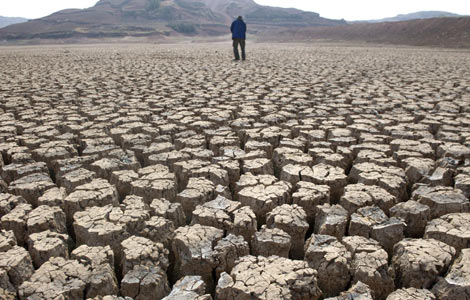
|
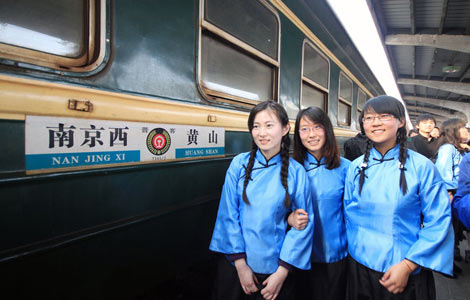
|
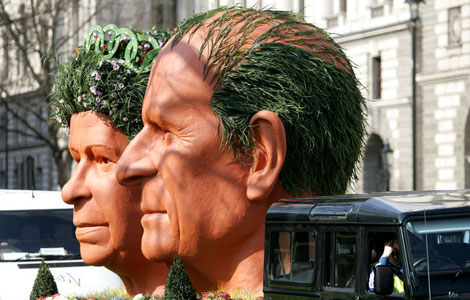
|
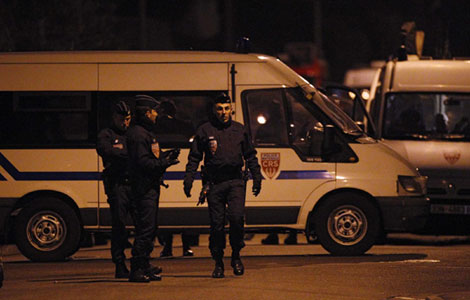
|
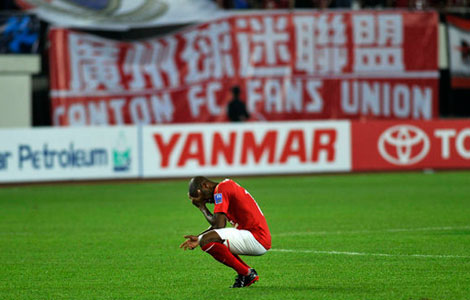
|
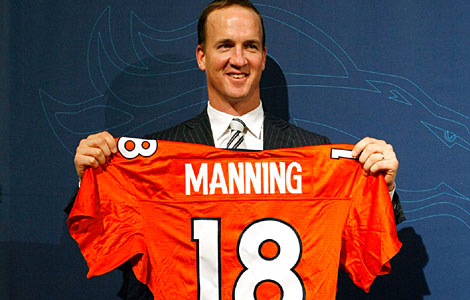
|